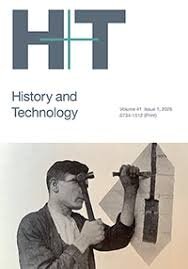Social Control and Disciplining Discourses on Mobility Practices During Portuguese Dictatorships (1930s–50s)
- Autoria
- Edição
- Volume 41
- Ano
- 2025
- Periódico
History and Technology
- Nº de Páginas
- 53-75

ABSTRACT
This paper addresses the production of discourses on the mobility practices of ‘the poor’ as a form social control in Portugal during the military dictatorship (1926–32) and the first decades of the Estado Novo (New State) dictatorship (1933–74), namely on barefoot pedestrians, and on professional motorists. Built on safety discourses, they were not neutral, but produced norms, prescriptions on appropriate behaviour and power relations. These discourses had an impact upon two levels: regulations and representations. They were part of larger processes, such as: the legitimation efforts of the Estado Novo dictatorship indoors and outdoors (social and material ‘modernisation’ measures, the promotion of foreign tourism), and the redefinition of the street as a thoroughfare and the consequent increase of road ‘accidents’. This paper shows that the disciplining and moralisation discourses on both the bodies of pedestrians and professional motorists, as well as the control of their social behaviour, produced and were shaped by these larger processes.